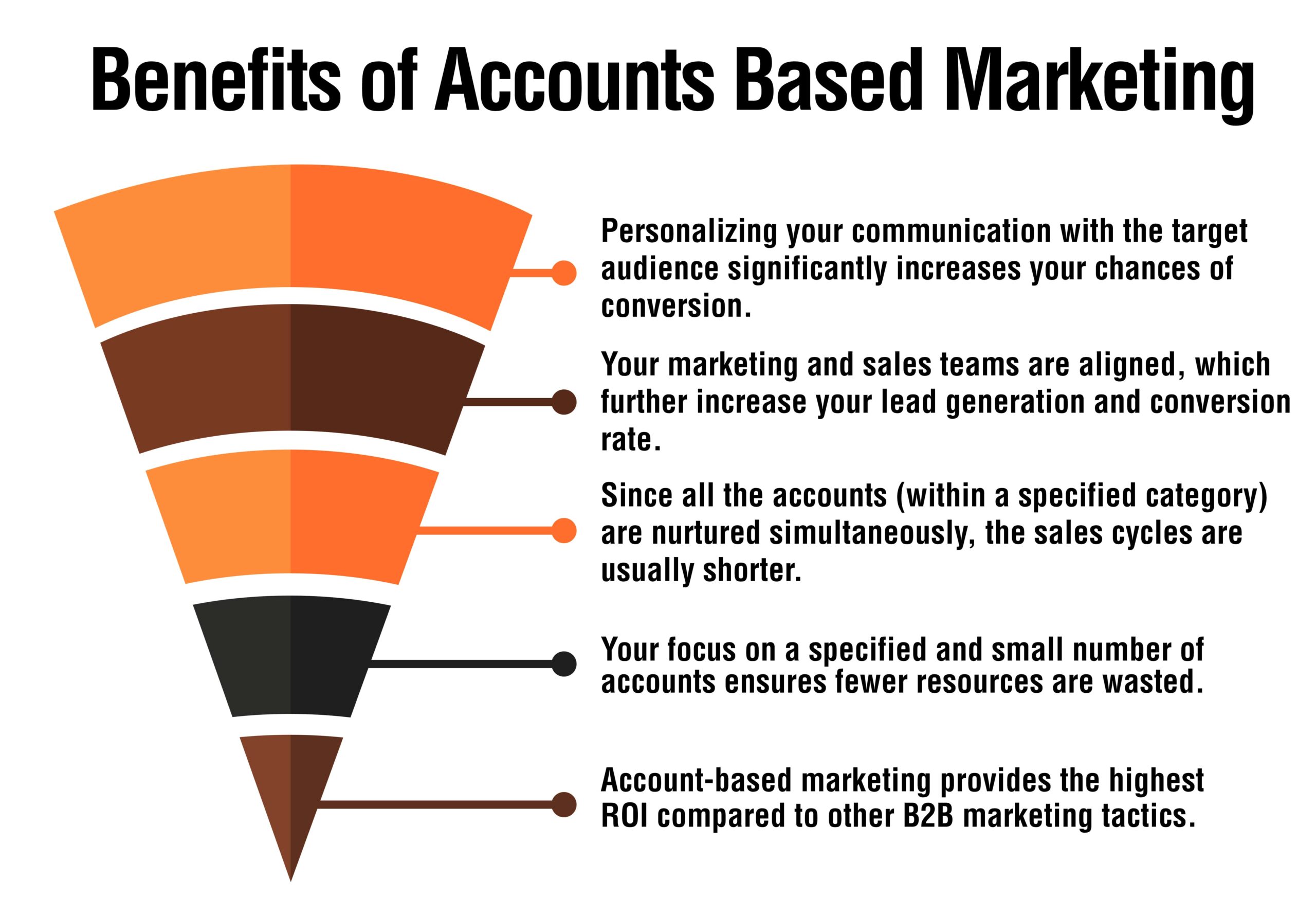The Benefits of Account-Based Marketing
Account Based Marketing (ABM) is a strategic approach that focuses on targeting specific accounts with personalized marketing efforts. It has gained significant popularity in recent years due to its effectiveness in driving revenue growth and improving customer satisfaction. In this article, we will explore the various benefits of implementing ABM and how it can help businesses outperform their competitors.
Increased Personalization
One of the key advantages of ABM is its ability to deliver highly personalized experiences to targeted accounts. By focusing on individual accounts, marketers can tailor their messaging, content, and offers to address the specific needs and pain points of each account. This level of personalization enhances engagement, builds stronger relationships, and ultimately increases the chances of converting leads into loyal customers.
Improved Alignment between Sales and Marketing
ABM promotes better alignment between sales and marketing teams. By targeting specific accounts, both teams can work together to develop a unified strategy and approach. This collaboration ensures that marketing efforts are aligned with the sales goals, resulting in more effective lead generation, nurturing, and conversion. The shared goals and metrics lead to improved communication and a more streamlined sales process.
Enhanced Customer Experience
With ABM, businesses can provide a superior customer experience by delivering relevant and valuable content to their target accounts. By understanding the specific pain points and challenges faced by each account, marketers can create tailored content that addresses those issues directly. This level of personalization not only increases engagement but also positions the business as a trusted advisor, leading to higher customer satisfaction and loyalty.
Higher Conversion Rates
ABM has been proven to drive higher conversion rates compared to traditional marketing approaches. By focusing on a smaller number of high-value accounts, marketers can allocate their resources more efficiently and effectively. This targeted approach ensures that marketing efforts are directed towards accounts that are more likely to convert, resulting in increased conversion rates and a higher return on investment.
Increased ROI
Implementing ABM can lead to a significant increase in return on investment (ROI). By targeting specific accounts, businesses can optimize their marketing efforts and allocate resources more effectively. This targeted approach helps reduce wasted marketing spend on accounts that are not likely to convert. Additionally, the higher conversion rates and improved customer satisfaction associated with ABM contribute to a higher overall ROI.

Account Based Marketing offers numerous benefits for businesses looking to outperform their competitors. By personalizing marketing efforts, aligning sales and marketing teams, enhancing the customer experience, and driving higher conversion rates, ABM can significantly impact revenue growth and customer satisfaction. By implementing ABM strategies, businesses can position themselves as industry leaders and gain a competitive edge in the market.
Frequently Asked Questions – Benefits of Account-Based Marketing
1. What is account-based marketing (ABM)?
Account-based marketing is a strategic approach that focuses on targeting and engaging specific high-value accounts, rather than casting a wide net. It involves personalized marketing and sales efforts tailored to the needs and characteristics of individual accounts.
2. What are the key benefits of account-based marketing?
The key benefits of account-based marketing include:
Higher conversion rates
Improved customer retention
Increased revenue from target accounts
Enhanced alignment between marketing and sales teams
Improved ROI on marketing efforts
3. How does account-based marketing help in increasing conversion rates?
Account-based marketing helps in increasing conversion rates by allowing companies to focus their resources on high-value accounts that are more likely to convert. Personalized marketing campaigns and targeted messaging tailored to the needs of these accounts improve the chances of conversion.
4. Can account-based marketing improve customer retention?
Yes, account-based marketing can improve customer retention. By understanding the specific needs and pain points of individual accounts, companies can provide personalized experiences and proactive support, leading to higher customer satisfaction and loyalty.
5. How does account-based marketing contribute to increased revenue from target accounts?
Account-based marketing contributes to increased revenue from target accounts by nurturing relationships and delivering targeted content and offers that resonate with the needs of those accounts. This personalized approach helps in building stronger connections and driving more sales.
6. How does account-based marketing enhance alignment between marketing and sales teams?
Account-based marketing enhances alignment between marketing and sales teams by fostering close collaboration and shared goals. Both teams work together to identify target accounts, develop personalized strategies, and measure the success of marketing efforts in terms of revenue generated.
7. Can account-based marketing improve ROI on marketing efforts?
Yes, account-based marketing can improve ROI on marketing efforts. By focusing resources on high-value accounts, companies can avoid wasting resources on less promising leads. This targeted approach ensures that marketing efforts are directed towards accounts with a higher likelihood of conversion, leading to better ROI.
8. Is account-based marketing suitable for all types of businesses?
Account-based marketing is particularly effective for businesses that have a small number of high-value accounts or operate in niche markets. However, it can be adapted and scaled for different types of businesses, depending on their goals and target audience.
9. How can account-based marketing be implemented successfully?
Successful implementation of account-based marketing involves several key steps, including:
Identifying high-value target accounts
Developing personalized marketing strategies
Aligning marketing and sales teams
Creating customized content and offers
Measuring and optimizing campaign performance
10. Are there any challenges associated with implementing account-based marketing?
Yes, implementing account-based marketing can come with challenges such as:
Identifying the right target accounts
Creating personalized content at scale
Ensuring alignment between marketing and sales teams
Measuring the success and ROI of campaigns




